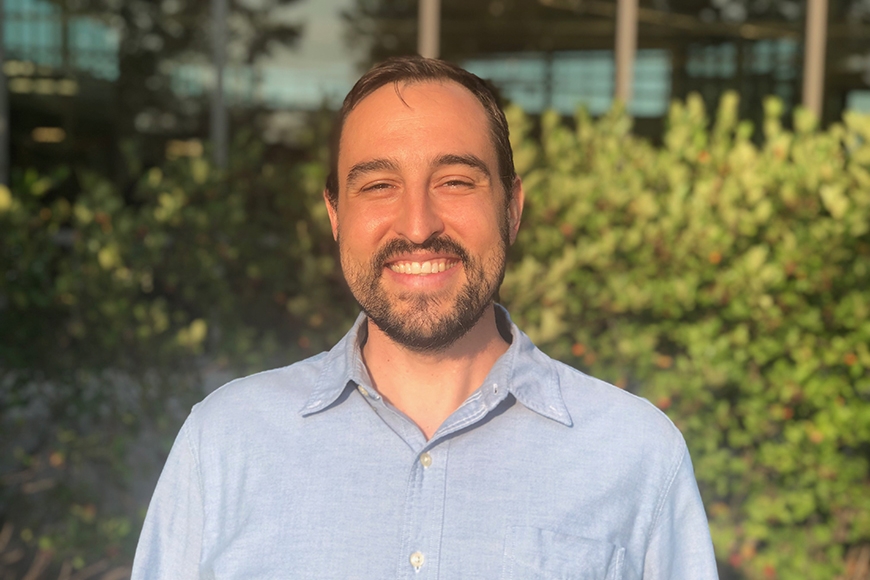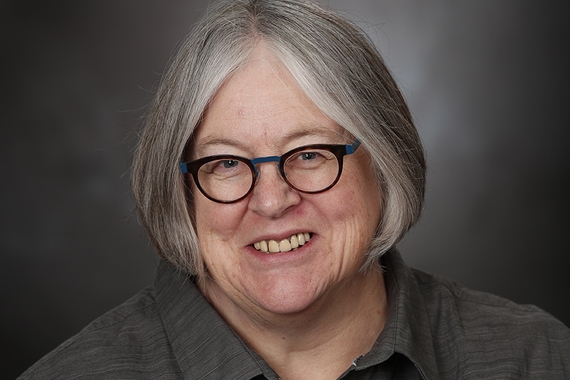Librarian: A Career for English Majors
Librarianship is an excellent career fit for English majors, says Ian Reinl (BA 2019), Associate Librarian at Hennepin County Library. And it's not just a matter of understanding theme and genre, or how to research via library databases. "The empathy I gained by reading works written by diverse authors and having conversations about them with classmates and faculty taught me to be curious about how other people see the world," Reinl notes. "This helps me assist patrons in finding the information they are looking for in a way that is meaningful and helpful to them. Knowing the collection is only part of the job, and the rest is connecting patrons to it." Reinl graciously agreed to be interviewed via email.
What have you enjoyed most about your work?
I chose this career because I love to learn and didn’t want to stop encountering new ideas just because I graduated college. Now, nearly every day, I see a book about a topic that I may not have even known existed, and someone wrote a whole book about it! It has also been great helping others learn. Whether it’s a kid looking for their first book about feelings or about sloths, or a patron wanting to learn how to build a LinkedIn profile, getting people the information they need to grow and enrich themselves is highly rewarding.
Advice for current majors interested in careers like yours?
My number one piece of advice for English majors interested in librarianship is to get a student job or a volunteer position in the library. Graduate schools and employers both want to see experience in a library, and it will help you know whether this is a good career path for you before spending the money to get a Master’s degree in Library Science. Talking to current librarians is also a good idea.
I would also recommend gaining some technical experience, whether that be practice with Excel spreadsheets, with SQL, a database query language, or with Python. There are opportunities to do this in graduate school, but if you can get some experience before that, you’ll be able to spend time getting more proficient. Not all of the jobs that graduates can get with a Library Science degree are in public or academic libraries. Many businesses are looking for help building taxonomies or controlled vocabularies to help catalog their products to sell them in e-commerce settings, and in these fields having technical proficiency is particularly desired.
What do you most appreciate about your time at the University of Minnesota?
I especially loved getting to know my peers and faculty, and being exposed to new ideas. I had very rich conversations with different people, many I still think about years later. I remember stopping into faculty office hours to ask questions about books or ideas I was encountering outside of the classroom, or how concepts I was learning in other classes might relate to their class content. I also miss using the writing center at UMN. I realize now what a valuable tool it is to have others willing to read my work and to help me brainstorm ideas when I was stuck or was too close to a paper to see clearly what was working and what wasn’t.
What books are you recommending these days?
For fiction, I have been recommending the audiobook versions of any Lucy Foley book. The narrators are fantastic, and the stories are fun, Agatha Christie-style murder mysteries. For a non-fiction recommendation, I have been enjoying God, Human, Animal, Machine: Technology, Metaphor, and the Search for Meaning by Meghan O’Gieblyn. It is a collection of essays examining what it means to be human in an increasingly technological world.



